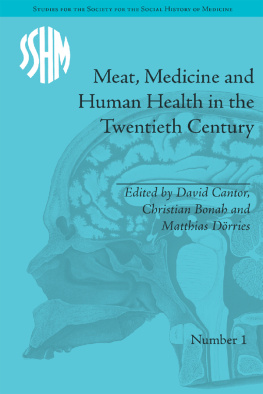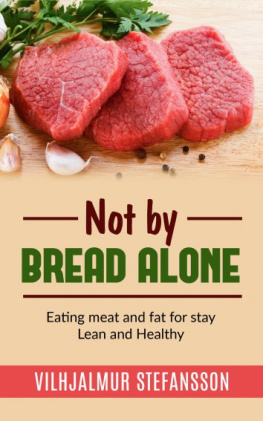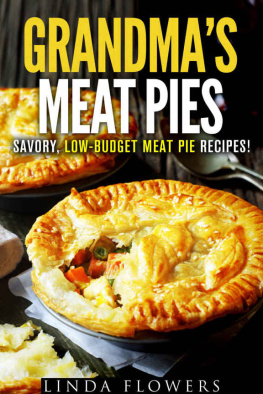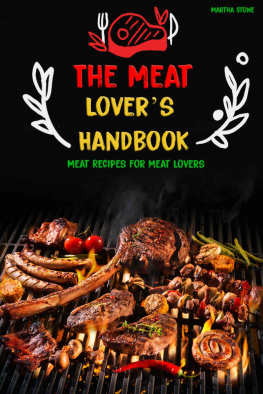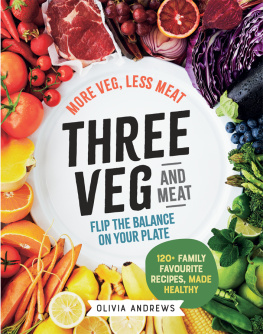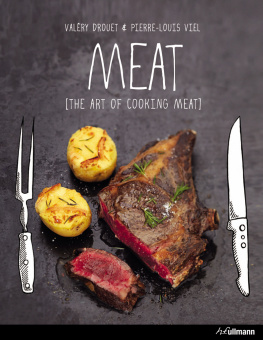First published 2010 by Pickering & Chatto (Publishers) Limited
Published 2016 by Routledge
2 Park Square, Milton Park, Abingdon, Oxon OX14 4RN
711 Third Avenue, New York, NY 10017, USA
Routledge is an imprint of the Taylor & Francis Group, an informa business
Taylor & Francis 2010
David Cantor, Christian Bonah and Matthias Domes 2010
All rights reserved, including those of translation into foreign languages. No part of this book may be reprinted or reproduced or utilised in any form or by any electronic, mechanical, or other means, now known or hereafter invented, including photocopying and recording, or in any information storage or retrieval system, without permission in writing from the publishers.
Notice:
Product or corporate names may be trademarks or registered trademarks, and are used only for identification and explanation without intent to infringe.
BRITISH LIBRARY CATALOGUING IN PUBLICATION DATA
Meat, medicine and human health in the twentieth century. (Studies for the Society for the Social History of Medicine)
1. Meat Health aspects Europe History 20th century. 2. Meat Health aspects North America History 20th century. 3. Meat industry and trade Health aspects Europe History 20th century. 4. Meat industry and trade Health aspects North America History 20th century.
I. Series II. Cantor, David, 1957 III. Bonah, Christian. IV. Dorries, Matthias.
64l.36-dc22
ISBN-13: 978-1-84893-103-9 (hbk)
Typeset by Pickering & Chatto (Publishers) Limited
Rima D. Apple is Professor Emerita at the University of Wisconsin-Madison. She has published extensively in womens history, the history of medicine, and the history of nutrition. Among her books are Perfect Motherhood: Science and Childrearing in America (New Brunswick, NJ: Rutgers University Press, 2006) and Vitamania: Vitamins in American Culture (New Brunswick, NJ: Rutgers University Press, 1996) which received the Kremers Award, 1998, from the American Institute of the History of Pharmacy.
Christian Bonah is Professor for the History of Medical and Health Sciences at the University of Strasbourg and holds at present a research professorship at the Institut Universitaire de France (IUF). He has worked on comparative history of medical education, the history of medicaments and vaccines, and the history of human experimentation. Recent work includes research on risk perception and management in drug scandals and courtroom trials as well as studies on medical film. Recent publications include: Lexprimentation humaine. Discours et pratiques en France, 19001940 (Paris: Les Belles Lettres, 2007); Packaging BCG: Standardizing an Anti-Tuberculosis Vaccine in Interwar Europe, Science in Context, 21:2 (2008), pp. 279310. He has co-edited volumes on Harmonizing 20th Century drugs: Standards in pharmaceutical history (Paris: Glyphe, 2009); Histoire et mdicament au XIXe et XXe sicle (Paris: Glyphe, 2005) and Nazisme, science et mdecine (Paris: Glyphe, 2006).
Michael Broadway is Professor of Geography and Interim Dean of Arts & Sciences at Northern Michigan University where he teaches a course on Food and Society. His research expertise focuses on the meatpacking industrys community impacts. He has studied small towns with packing plants across the Great Plains and Prairies and published over thirty articles and book chapters on the topic. In 2006 he was a visiting Fulbright Research Chair in the Department of Rural Economy at the University of Alberta where he studied the impact of the provinces outbreak of mad cow disease on a rural community. He is a co-author with Donald Stull of Slaughterhouse Blues: The Meat and Poultry Industry in North America (2004 Wadsworth).
David Cantor is Deputy Director of the Office of History, National Institutes of Health, Bethesda, Maryland. His scholarly work focuses on the twentieth-century history of medicine, most recently the histories of cancer and medical film. He is the editor of Reinventing Hippocrates (Aldershot: Ashgate, 2002) and Cancer in the Twentieth Century (Baltimore, MD: Johns Hopkins University Press, 2008), and series editor (edited collections) of the series in which this book appears: Studies for the Society of the Social History of Medicine published by Pickering and Chatto.
Matthias Drries is Professor for History of science at the University of Strasbourg, France. His research and interests focus on the geophysical sciences and most recently climate change with an interest in linking these issues with health, medicine and the health sciences at large. His most recent research includes articles on the history of volcanism and climate change, and the nuclear winter theory
Jean-Paul Gaudillire is a senior researcher at Le Centre de Recherche Mdicale et Sanitaire and lInstitut National de la Sant et de la Recherche Mdicale (CERMES-INSERM) in Paris. His work addresses many aspects of the history and sociology of the biomedical sciences during the twentieth century, particularly molecular biology and medicaments. His present research focuses on the history of biologicals as drugs, ways of regulating medicaments, and pharmaceutical innovation between the North and the South. Amongst others, he has edited, Drug Trajectories, a special issue of Studies in the History and Philosophy of the Biological and Biomedical Sciences, 36:4 (2005) and How Pharmaceuticals Became Patentable in the Twentieth Century, a special issue of History and Technology, 24:2 (2008); he has co-edited, with Volker Hess, Ways of Regulating: Therapeutic Agents Between Plants, Shops and Consulting Rooms (Max-Planck Institut fr Wissenschaftgeschichte, Preprint Series, 363, 2009) and is the author of Inventer la biomdecine. La France, Amrique et la production des savoirs du vivant (19451965)

